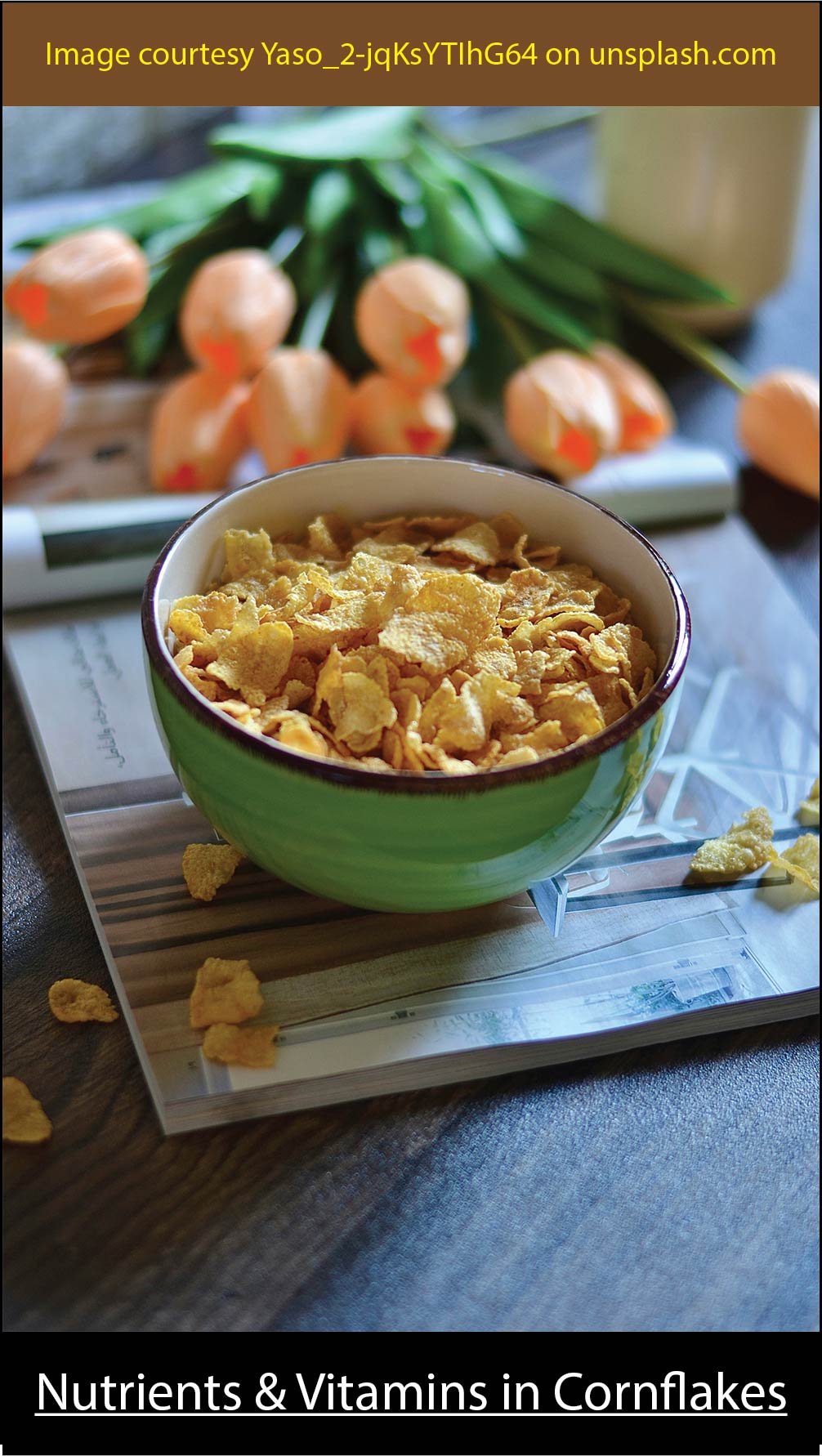Introduction
Cornflakes are a popular, tasty, and convenient ready-to-eat breakfast food worldwide. They are popular with children and adults alike and are convenient for people who must rush to work early in the morning. Pour cornflakes into a bowl, pour milk, and your breakfast is ready! It is so simple!
But how healthy are cornflakes? Branded cornflakes advertise their packed cornflakes as a health food on visual and print media. It is correct that branded cornflakes are fortified with nutrients, vitamins, and minerals. However, it is also true that cornflakes are a highly processed food and contain added sugar. The sugar content can differ from brand to brand.
This article discusses nutrients and vitamins in cornflakes.
So, if you are new to cornflakes and want to make it a part of your diet, consult your doctor before deciding. Also, do read the nutrient information and allergen information printed on the package.
Nutrients and vitamins in cornflakes
The major nutrient content of cornflakes is carbohydrate. And the carbohydrate includes added sugar. The other nutrients are vitamins, protein, and minerals like iron and zinc. Many of these nutrients are fortified during the conversion of corn kernels to cornflakes.
Since cornflakes are always paired with milk, you will get all the goodness of milk. However, cornflakes have nil or negligible amounts of dietary fiber.

Pros and cons of cornflakes
Pros
- Cornflakes are convenient, tasty, and ready-to-eat breakfast.
- It is easily digestible.
- You can customize cornflakes by combining them with milk, and a choice of dry fruits, and fresh fruits.
- Cornflakes are fortified with vital vitamins and minerals.
- Cornflakes have Antioxidants.
Cons
- Cornflakes are a highly processed food. Regular and continuous consumption of highly processed foods is not considered healthy.
- Cornflakes have a high Glycaemic index of above 80 and a Glycaemic load of around 54.
- Cornflakes have a high added sugar content.
- Cornflakes have nil or negligible amounts of dietary fiber.
- Some brands of cornflakes may contain food additives not considered good.
Can you add fruits to the cornflakes to make it a better breakfast option?
Yes, mixing cornflakes with fibrous fruits can make it a better, healthy, and tastier breakfast. When you combine cornflakes, milk, and fibrous fruits, it gives you proteins, vitamins, and fiber. You can use your choice of fibrous fruits including apples, bananas, berries, guava, avocado, and pears.
Fruits are superb sources of dietary fiber and help slow digestion, regulate bowel movements, and keep your stomach full for a longer time.
Adding fibrous fruits to the cornflakes may bring down the Glycemic Load of your breakfast.
However, if you are new to cornflakes, please take the advice of your doctor before adding it to your diet. Discuss with the doctor about which fruit is good to combine with cornflakes to make it a healthier option. Also, do not forget to read the nutrient content and allergen declaration printed on the package.
Conclusion
Cornflakes is a very convenient and tasty breakfast for people with busy mornings. However, consumption of cornflakes as an everyday breakfast may not be a healthy option. This is especially so if you have any medical conditions including diabetes.
You may like to read the following articles:
How Murmura (puffed rice) is made from rice
How Poha is made from rice (paddy)
What is Sabudana and how it is made in India
How rice is grown and harvested in India
References
https://www.kelloggs.co.uk/en_GB/products/kellogg-s-corn-flakes.html
https://hyugalife.com/blog/corn-flakes-benefits-nutrition-side-effects?

